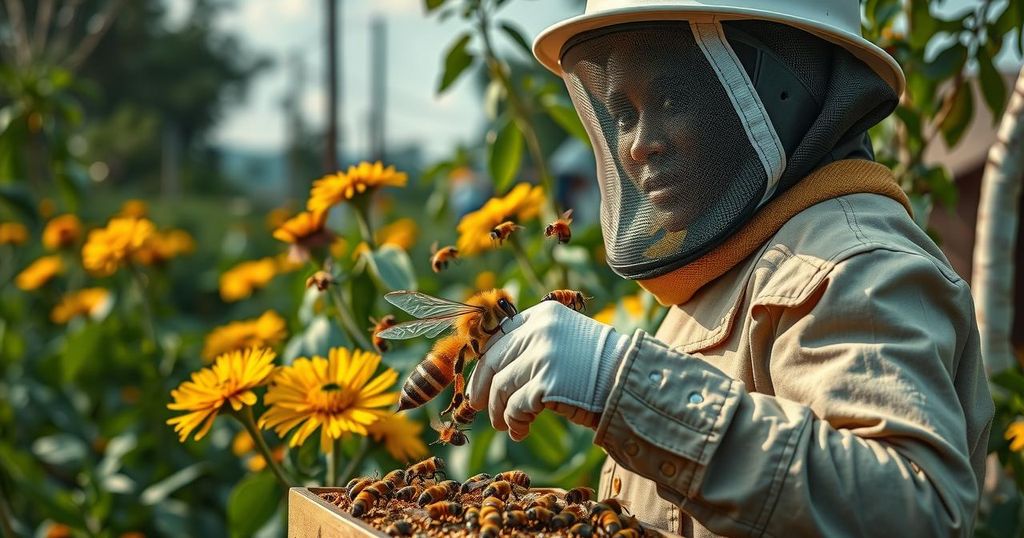Beekeeping as a Resilient Livelihood Amid Climate Challenges in Kenya

Communities in Kenya’s drylands are increasingly challenged by climate change, facing issues such as drought and floods that threaten traditional livelihoods. In response, conservation experts are promoting beekeeping as an alternative, fostering both economic sustainability and environmental resilience. This initiative empowers local communities to adapt and thrive despite changing climate conditions.
In light of the escalating impacts of climate change, communities in Kenya’s drylands are facing significant challenges, such as increasing droughts and unpredictable flooding. Traditional agricultural practices and livestock rearing are becoming increasingly unsustainable under these conditions. To combat these adverse effects, conservation experts are promoting beekeeping as a viable alternative livelihood. This not only offers a source of income but also fosters ecological balance by enhancing pollination and supporting local flora. Consequently, beekeeping emerges as a powerful tool for community resilience in the face of climatic adversities.
Kenya, like many other regions around the world, is grappling with the severe consequences of climate change, particularly in its arid and semi-arid areas. These regions are characterized by community livelihoods that rely heavily on agriculture and livestock, which are increasingly threatened by fluctuating weather patterns. The United Nations Environment Program highlights the vulnerability of these populations, prompting experts to introduce climate-resilient practices that can sustain local economies. Beekeeping has been identified as one such alternative that not only empowers communities economically but also contributes to biodiversity.
In conclusion, beekeeping is emerging as a vital strategy for communities in Kenya to adapt to the challenges posed by climate change. By shifting towards this sustainable practice, they not only secure their livelihoods but also contribute to environmental conservation. The initiative presents a collaborative approach to resilience, fostering both economic and ecological stability amidst the ongoing climate crisis.
Original Source: www.voanews.com






